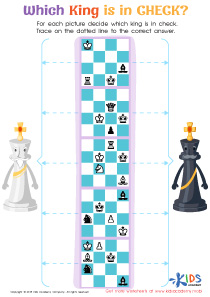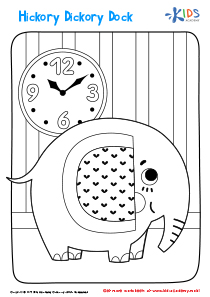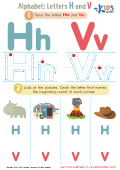Normal Counting to 10 Quizzes for Ages 4-5
6 results
6 filtered results
Clear all filters6 filtered results
-
From - To
Discover the world of numbers with our "Normal Counting to 10 for Ages 4-5" interactive assessment quizzes! Designed specifically for preschoolers, this engaging learning tool reinforces the basics of counting in an enjoyable and supportive way. Each quiz checks your child's counting skills and offers instant feedback to guide their learning journey. With vibrant visuals and intuitive questions, these quizzes make learning to count up to 10 a fun and rewarding experience. Perfect for children aged 4 to 5, our quizzes are a great way to build a strong mathematical foundation. Start your child's adventure in numbers today!
In the formative years of childhood, especially for those in the age bracket of 4-5, developing a solid foundation in basic mathematical concepts is pivotal. Among these fundamental skills, the ability to count to 10 stands out as a crucial milestone. This is where our Normal Counting to 10 interactive quizzes for Ages 4-5 come into play, offering a unique and effective learning tool tailored to assist children in grasping this essential skill.
Understanding numbers and their order is more than just rote memorization; it's about building a relationship with numbers and recognizing their significance in the world around us. Our Normal Counting to 10 quizzes are designed not only to introduce children to the numbers 1 through 10 but also to teach them the concept of quantity, sequence, and the basic principles of addition and subtraction that naturally follow a solid understanding of counting.
One of the key benefits of our interactive quizzes is their ability to engage young learners. Children at the age of 4-5 have a natural curiosity and a desire to play. Our quizzes leverage this by incorporating vibrant visuals, engaging characters, and playful sound effects that transform learning into an enjoyable experience. This engagement is crucial for retention, making it more likely for the children to remember and understand the numbers and their order.
Moreover, our Normal Counting to 10 quizzes are structured to provide immediate feedback. When a child answers a question, they instantly know whether they've got it right or need to try again. This immediate validation helps in reinforcing correct answers and provides an opportunity for children to learn from their mistakes, fostering a positive learning environment where children are encouraged to explore and learn at their own pace.
Personalization is another cornerstone of our interactive quizzes. Not every child learns at the same pace, nor do they all have the same learning style. Our quizzes adapt to the individual needs of each child, offering different levels of difficulty and diverse question formats to cater to the varied ways children learn best. This individualized approach ensures that all children, regardless of their starting point, can progress and build confidence in their counting abilities.
The quizzes also offer a practical way for parents and educators to track the progress of their children or students. Through detailed reports and insights, adults can see how well the child is grasitating the concept of counting to 10, which areas they might be struggling with, and where further practice is needed. This data-driven approach allows for targeted instruction and support, ensuring that each child receives the guidance they need to succeed.
In conclusion, our Normal Counting to 10 interactive quizzes for Ages 4-5 are an invaluable resource for developing early mathematical skills. By making learning fun and engaging, providing immediate feedback, personalizing the learning experience, and offering insights into progress, these quizzes help lay the groundwork for a lifetime of mathematical learning and understanding. As children master counting to 10, they're not just learning numbers; they're building confidence, developing problem-solving skills, and setting the stage for future academic success.













